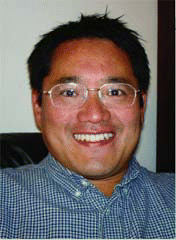Noise-induced hearing loss is a key challenge in otolaryngology today. Interestingly, an older class of antiepileptic drugs, T-type calcium blockers, may hold promise as preventive agents.
Explore This Issue
August 2007In a recently published study, a transnational team of Chinese and US investigators found that mice that were given trimethadione (Tridione) or ethosuximide (Zarontin) and then exposed to loud noises had lower levels of permanent noise-induced hearing loss than did controls.1 The rationale for using these agents was that since calcium dysregulation is known to contribute to noise-induced hearing loss, calcium channel blockers may have preventive value.
In the study, the investigators divided the mice into three groups: a prevention group, which received the medications in drinking water prior to noise exposure; a treatment group, which received the medications after noise exposure; and controls, which received neither medication. The medications were delivered separately in the preventive and treatment groups.
Prevention and Treatment Benefits Documented
The investigators found that trimethadione had significant value as a preventive agent, as measured by auditory brainstem recording. Both agents reduced noise-induced hearing loss as treatments given after noise exposure. Interestingly, male mice showed a greater benefit than did female mice.
Treated mice had higher hair cell count and neuronal density and, therefore, the enhanced preservation of outer hair cells. The drugs were associated with a reduction of approximately five decibels in the permanent threshold shift that can occur after noise exposure. A five-decibel difference is sufficient to make a difference in whether a person can hear ordinary conversation, the investigators noted.
When the investigators conducted immunocytochemistry and reverse-transcriptase polymerase chain reaction (RT-PCR) tests, the findings suggested that the drugs’ protective effects were linked to their action on alpha-1 subunits of calcium channel types in the cochlea. Therefore, the findings should be encouraging of clinical studies to test T-type calcium blockers to prevent and treat noise-induced hearing loss, they wrote.
Hearing Loss a Common Occupational Hazard
How would such a treatment work in people who are vulnerable to noise-induced hearing loss, such as military personnel and construction workers? In separate phone interviews with ENT Today, the study’s senior author and an expert in hearing loss commented on the study’s clinical implications.
“This study is the result of seeing whether drugs that were already approved by the Food and Drug Administration [FDA] had any potential to prevent or treat noise-induced hearing loss,” said senior author Jianxin Bao, PhD. “We found that antiepileptic drugs in this class may have some role, and therefore we tested trimethadione and ethosuximide.” Dr. Bao is a Research Associate Professor of Otolaryngology and head of the Central Institute for the Deaf’s Presbycuscis and Aging Laboratory at Washington University School of Medicine in St. Louis.

Leave a Reply